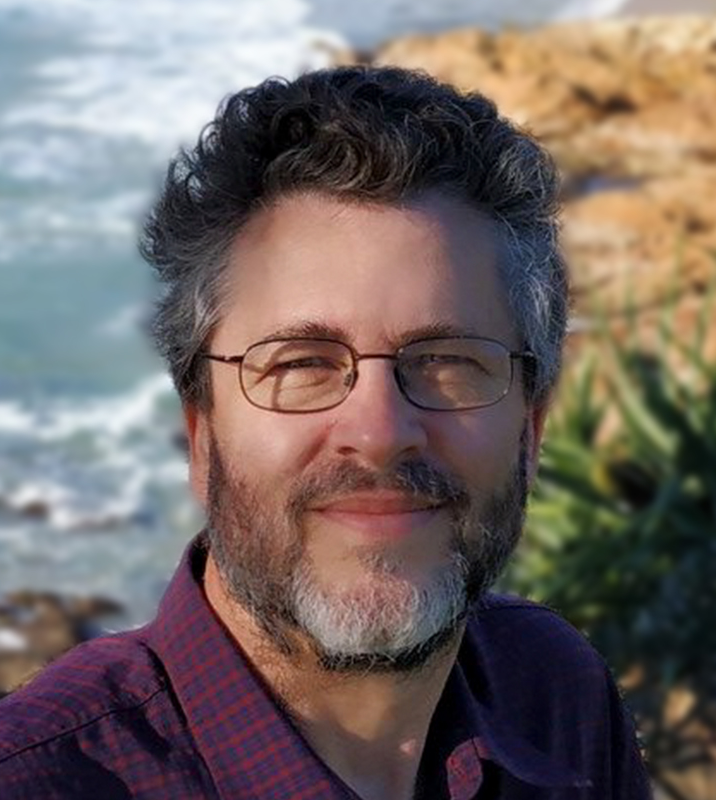 Prof. Wray Buntine (VinUniversity, Vietnam)
Prof. Wray Buntine (VinUniversity, Vietnam)
Title: Bayesian Methods and Their Use in Deep Learning Abstract: This tutorial will consist of three sections. First, basic concepts of Bayesian Decision Theory and the analysis of uncertainty will be covered. This includes the use of utilities in decision theory, the role and understanding of subjective and objective probabilities, and the role of entropy in measuring information. These concepts can be viewed as a version of basic laws for intelligent reasoning, and have been developed in different fields, economics, physics and engineering. To wrap up this section, we will discuss the philosophy of science, hypothesis testing, and the use of priors in reasoning. Second, basic computational methods for Bayesian reasoning will be covered in outline but not in detail. This will introduce sampling methods such as Monte Carlo Markov Chain, approximate methods such as ensembling and variational algorithms, and exact methods such as variable clustering methods not unlike Kalman Filters. Third, some relevant aspects of Deep Learning will be covered. Why do we need deep learning, and how are seemingly intuitive techniques like data augmentation, knowledge distillation and pre-training related to the probabilistic world of Bayesian methods. Some examples of these techniques in use will be presented. Biography: Wray Buntine is a full professor and Director of Computer Science at VinUniversity in Hanoi from December 2021 after 8 years at Monash University where he Director of Machine Learning and founding director of the Master of Data Science. He was previously at NICTA in Canberra, Helsinki Institute for Information Technology, NASA Ames Research Center, University of California, Berkeley, and Google. In the '90s he was involved in several startups for both Wall Street and Silicon Valley. He is known for his theoretical and applied work and in probabilistic methods for document and text analysis, social networks, data mining and machine learning. He was one of the independent co-founders of ensembling, the use of graphical models in machine learning, and efficient non-parametric methods for topic models. He is co-Editor-in-Chief for the new ACM Transactions on Probabilistic Machine Learning, also on several journal editorial boards and has been senior programme committee member for premier conferences such as IJCAI, AAAI, ICML, UAI, ICLR, NeurIPS, ACML and SIGKDD. He has over 200 academic publications, several software products and two patents. |
 Dr. Daniel Benevides da Costa (Technology Innovation Institute, United Arab Emirates)
Dr. Daniel Benevides da Costa (Technology Innovation Institute, United Arab Emirates)
Title: Rate-Splitting Multiple Access: Recent Advances from a Polarimetric Perspective Abstract: This tutorial will be divided into three parts. In the first part, I will briefly introduce the fundamentals of rate-splitting multiple access, showing its features and how it can softly bridge and unify other existing multiple access strategies. In the second part, it will be shown that the polarization domain can provide an extra degree of freedom (DoF) for improving the performance of multiple-input multiple-output (MIMO) systems. Then, it will be discussed this additional DoF to alleviate practical issues of successive interference cancellation (SIC) in RSMA schemes. Specifically, it will be presented three dual-polarized downlink transmission approaches for a massive MIMO-RSMA network under the effects of polarization interference and residual errors of imperfect SIC. The first approach implements polarization multiplexing for transmitting the users' data messages, which removes the need to execute SIC in the reception. The second approach transmits replicas of users' messages in the two polarizations, which enables users to exploit diversity through the polarization domain. The third approach, in its turn, employs the original SIC-based RSMA technique per polarization, and this allows the BS to transmit two independent superimposed data streams simultaneously. It will be shown that the performance of all RSMA schemes is impressively higher than that of single and dual-polarized massive MIMO systems employing non-orthogonal multiple access (NOMA) and orthogonal multiple access (OMA) techniques. In the third part of this tutorial, the potential synergy between intelligent reflecting surface (IRS) and RSMA will be discussed, in which it will be exploited the advanced capabilities of dual-polarized IRS for unleashing an enhanced RSMA polarization multiplexing. Results will show that IRS-MIMO-RSMA can efficiently mitigate detrimental depolarization phenomena and outperform other baseline schemes. The tutorial will be concluded by discussing potential open problems and research challenges on the theme. Biography: Daniel Benevides da Costa was born in Fortaleza, Ceará , Brazil, in 1981. He received the B.Sc. degree in Telecommunications from the Military Institute of Engineering (IME), Rio de Janeiro, Brazil, in 2003, and the M.Sc. and Ph.D. degrees in Electrical Engineering, Area: Telecommunications, from the University of Campinas, SP, Brazil, in 2006 and 2008, respectively. His Ph.D thesis was awarded the Best Ph.D. Thesis in Electrical Engineering by the Brazilian Ministry of Education (CAPES) at the 2009 CAPES Thesis Contest. From 2008 to 2009, he was a Postdoctoral Research Fellow with INRS-EMT, University of Quebec, Montreal, QC, Canada. From 2010 to 2022, he was with the Federal University of Ceará, Brazil. From January 2019 to April 2019, he was Visiting Professor at Lappeenranta University of Technology (LUT), Finland, with financial support from Nokia Foundation. He was awarded with the prestigious Nokia Visiting Professor Grant. From May 2019 to August 2019, he was with King Abdullah University of Science and Technology (KAUST), Saudi Arabia, as a Visiting Faculty, and from September 2019 to November 2019, he was a Visiting Researcher at Istanbul Medipol University, Turkey. From 2021 to 2022, he was Full Professor at the National Yunlin University of Science and Technology (YunTech), Taiwan. Since 2022, he is Principal Researcher of the AI and Digital Science Research Center at the Technology Innovation Institute (TII), a global research center and the applied pillar of Abu Dhabi's Advanced Technology Research Council. He is Editor of several IEEE journals and has acted as Symposium/Track Co-Chair in numerous IEEE flagship conferences. |
 Prof. Adel Belouchrani (Ecole Nationale Polytechnique, Algeria)
Prof. Adel Belouchrani (Ecole Nationale Polytechnique, Algeria)
Title: Quadratic Time Frequency Array Signal Processing: Multi-Dimensional Processing for Non-stationary Signals Abstract: Extension of conventional time-frequency analysis to data arrays has enabled synergistic development of advanced tools by exploiting the joint properties of time-frequency analysis and array signal processing methods. Conventional array signal processing assumes stationary signals and mainly employs the covariance matrix of the data array. This assumption is motivated by the crucial need in practice for estimating sample statistics by resorting to temporal averaging under the additional hypothesis of ergodic signals. When the frequency content of the measured signals is time varying, i.e. non-stationary signals, this class of approaches can still be applied. However, the achievable performances in this case are reduced with respect to those that would be achieved in a stationary environment. Instead of considering the nonstationarity as a shortcoming, Time Frequency Array Processing takes advantage of the non-stationarity by considering it as a source of information in the design of efficient algorithms in such environments. This talk deals with the relationship between Quadratic time-frequency distributions and array signal processing methods. The speaker plans to address a broad audience with general background in mathematics. Biography: Adel Belouchrani was born in Algiers, Algeria, on May 5, 1967. He received the State Engineering degree from Ecole Nationale Polytechnique (ENP), Algiers in 1991, an MSc degree in signal processing from the Institut National Polytechnique de Grenoble, France in 1992, and his PhD in signal and image processing from Télécom Paris, France in 1995. He was a postdoctoral fellow at the Electrical Engineering and Computer Sciences Department, University of California at Berkeley, CA, USA, from 1995 to 1996 and was with the Department of Electrical and Computer Engineering, Villanova University, Villanova, PA, USA, as a research associate, from 1996 to 1997. From 1998 to 2005, he was with the Electrical Engineering Department, ENP, as an associate professor. Since 2006, he has been a full professor with ENP. His research interests are in statistical signal processing, (blind) array signal processing, time-frequency analysis, and time-frequency array signal processing with applications in biomedical and communications. Dr. Belouchrani is a founding member of the Algerian Academy of Science and Technology. He has published over 200 technical publications including 68 journal papers, 5 book chapters and 4 patents that have been cited over 9100 times according to Google Scholar, over 5390 and over 3980 time according to the ISI Web of Science. He has also supervised over 30 PhD theses. Dr. Belouchrani was awarded an Arab-American Frontiers Fellowship of the U.S. National Academy of Sciences, Engineering and Medicine to conduct research on the blind identification of power sources in processors design at Brown University, Rhode Island, USA in 2016. He has served as Associate Editor of the IEEE Transactions on Signal Processing for two terms from 2013 to 2017 and as Editorial board member of the Digital signal processing Journal (Ed. Elsevier) from 2011 to 2019. He has been Senior Area Editor of the IEEE Transactions on Signal Processing for two terms from 2017 to 2021 and an elected member of the EURASIP Special Area Team (SAT)-Theoretical and Methodological Trends in Signal Processing for the 2018-2020 term, as well as an elected member of the IEEE Sensor Array and Multichannel Technical Committee for 2019-2021 term. He is currently the Editor-in-Chief of ENP Engineering Science Journal. Professor Adel Belouchrani has been elevated to IEEE Fellow in 2020. |